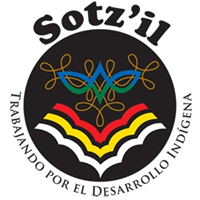Total funding for the FCPF Capacity Building Program
The FCPF Capacity Building Program for Forest-Dependent Indigenous Peoples and Southern Civil Society Organizations (CBP) works with indigenous peoples (IPs), other forest-dependent communities and southern civil society organizations (CSOs) increase their understanding of REDD+, and their engagement in REDD+ readiness and implementation. Launched in 2008, funding over three phases totals $9.9 million.
Phase 1 (2009-June 2016)
During Phase 1 of the CBP, just under $2 million in funding supported 27 projects across Africa, Asia-Pacific and Latin American and the Caribbean. These innovative projects were implemented by forest-dependent IPs and southern CSOs working with the FCPF Readiness Fund, and engaged in REDD+ readiness processes.
Phase 1 projects helped to improve IP and CSO participation in the preparation of REDD+ strategies, and in the implementation of REDD+ programs. CBP projects in Phase 1 also helped to enhance the participation of IPs and local communities in international discussions on the role of REDD+ in climate change mitigation.
REPORT: FCPF CBP results from Phase 1(English | 3.42 MB | 3.42 MB)
Phase 2 (July 2016-June 2018)
With approximately $3 million in funding, Phase 2 supports national-level capacity building and awareness raising, and regional-level exchange and sharing of lessons learned. In this phase, funding goes directly to regional organizations that coordinate several capacity-building projects in their respective regions.
Phase 2 is supporting six regional organizations, one for indigenous peoples and one for civil society organizations in Africa, Asia and Latin America. All six CBP Phase 2 programs have been operative since September 2017.
Phase 3
In March 2017, FCPF’s Participant’s Committee allocated an additional $5 million to the CBP. This amount was subsequently divided among the six existing regional organizations engaged with the CBP. For Phase 3, FCPF Carbon Fund countries will be prioritized in both the scale up of existing support and the initiation of new activities.
Phase 2/3 Regional Funding Recipients
| Region | IP organization | CSO organization |
|
Africa |
Based in Kenya, Mainyoito Pastoralist Integrated Development Organization (MPIDO) is working on REDD+ capacity-building projects in Cameroon, Ethiopia, Liberia, Nigeria, Republic of Congo, Sudan and Uganda.
|
|
|
Asia-Pacific |
Based in the Philippines, Indigenous Peoples' International Centre for Policy Research and Education (Tebtebba) is working on REDD+ capacity-building projects in Bhutan, Fiji, Vanuatu and Vietnam.
|
|
|
Latin American and the Caribbean |
Based in Guatemala, Association Sotz’il (Sotz’il) is working on REDD+ capacity-building projects in Colombia, Costa Rica, Guatemala, Honduras and Suriname.
|
|
How it works
The FCPF CBP was conceived to be a demand-driven program, in which forest-dependent IPs and southern CSOs present proposals to the FCPF’s Facility Management Team outlining their capacity-building needs. If proposals meet the FCPF’s eligibility requirements and are approved, organizations are contracted to implement projects according to a work plan of activities.
Grants for each of the six regional organizations are typically in the range of $400,000-$750,000. Sub-grants or contracts for specific regional or country-level activities are expected to be in the range of $25,000-$75,000.
To apply for funding from FCPF’s CBP, initiatives are encouraged to contact directly the appropriate regional organization engaged in FCPF’s CBP (see chart above).







